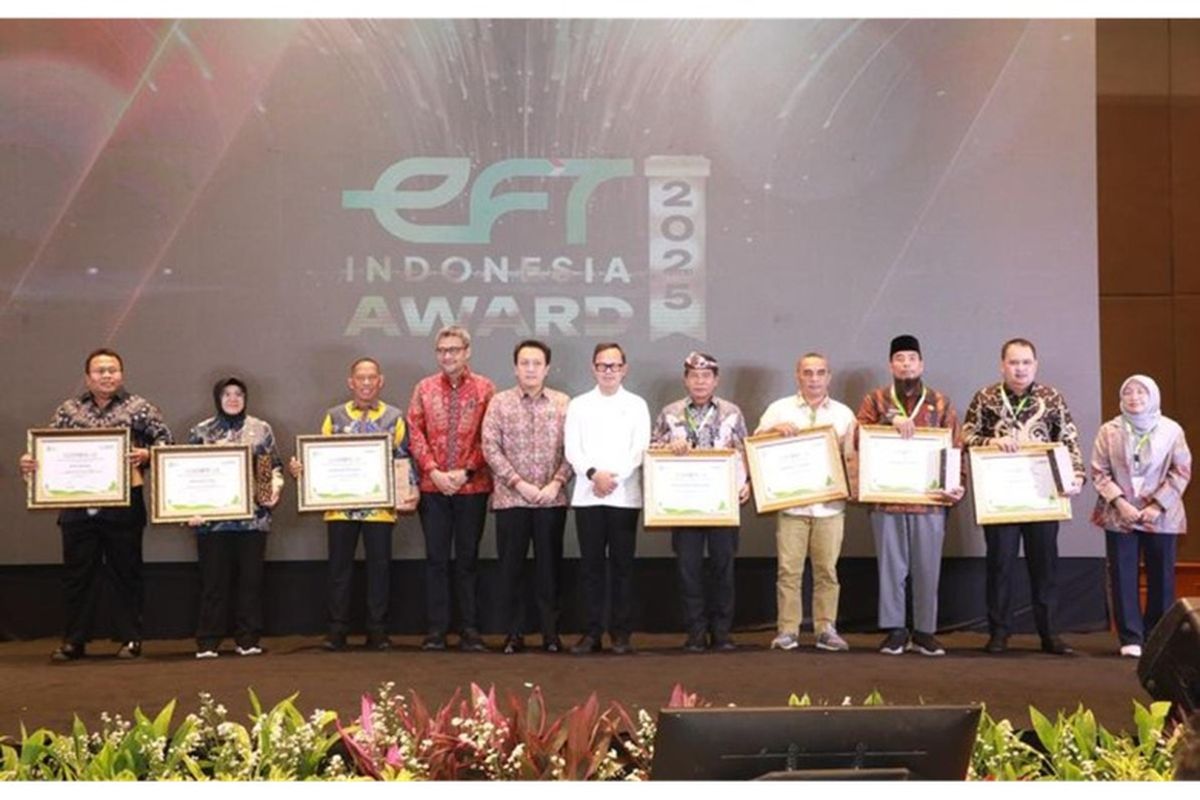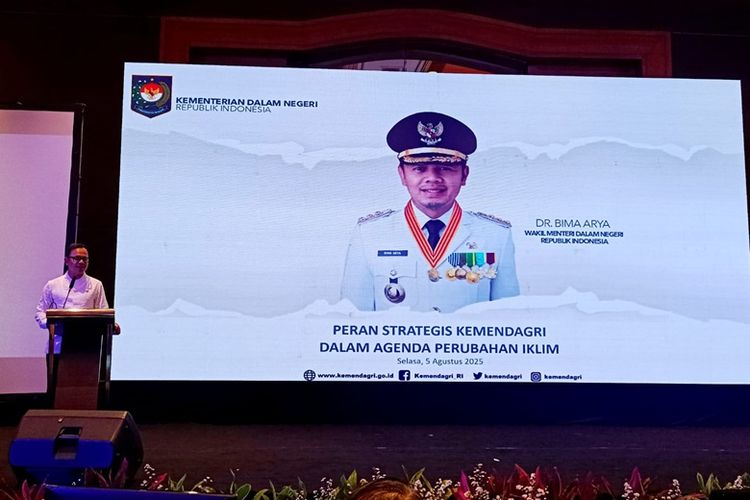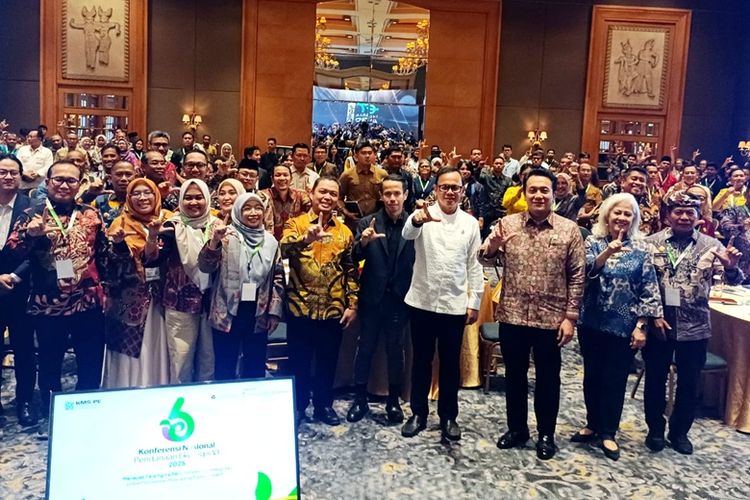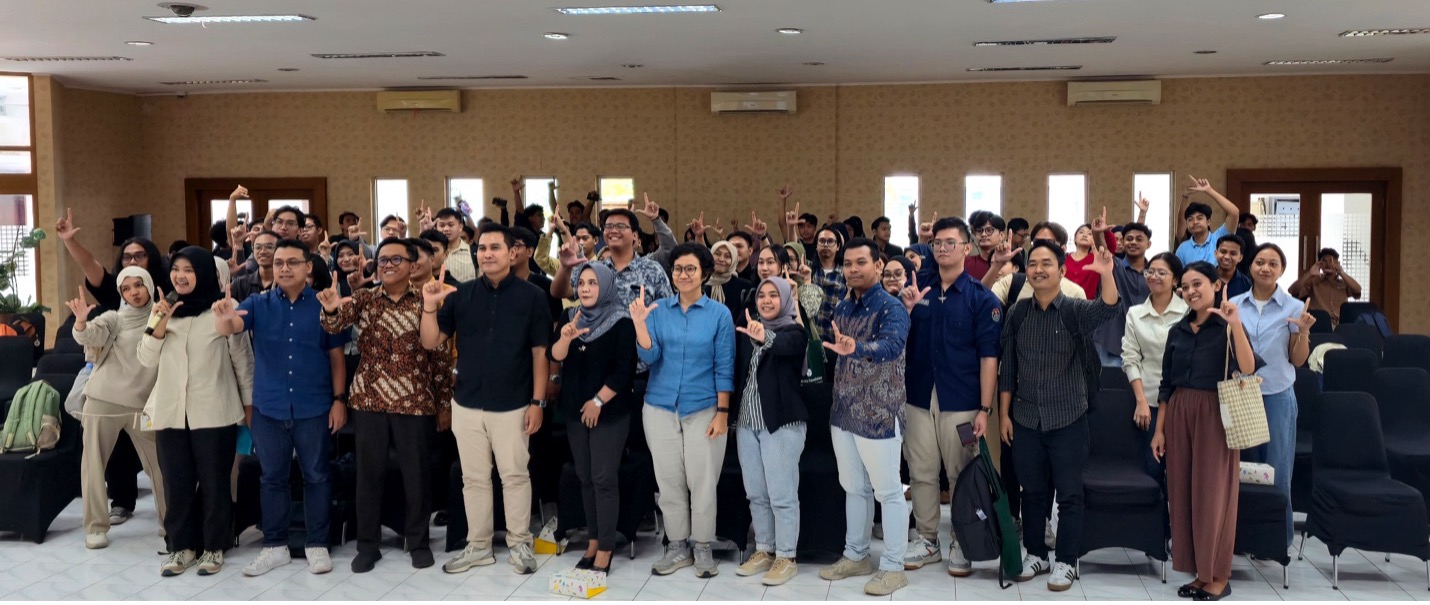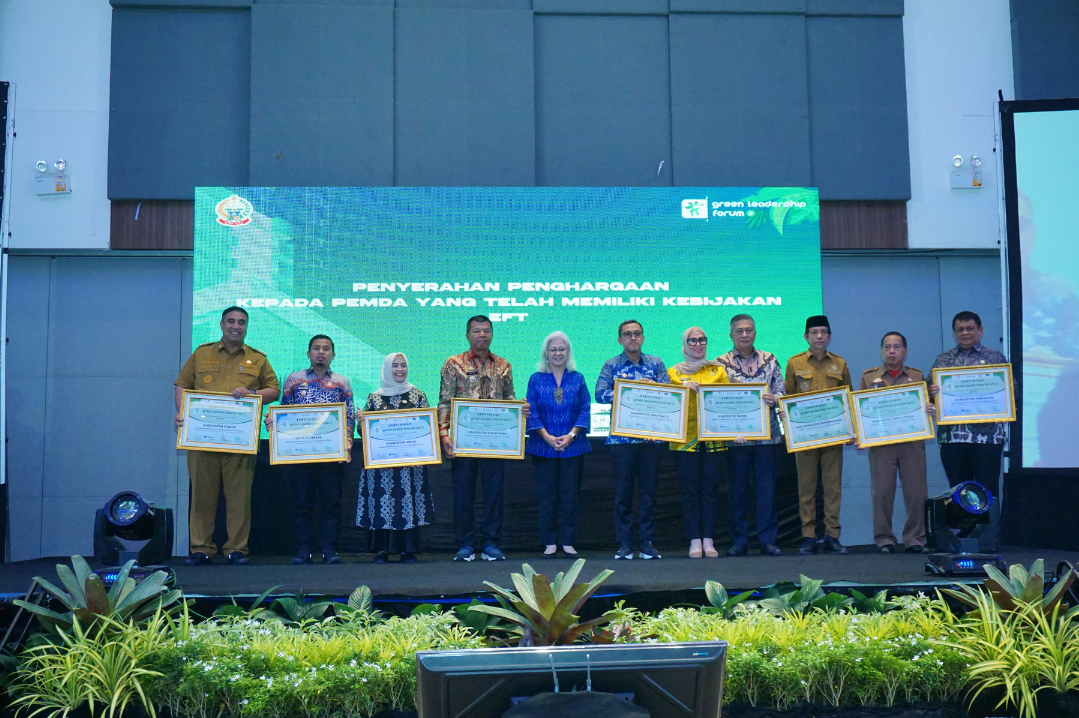Jakarta, Kompas.com – The ecological fiscal transfer (EFT) funding scheme is a potential solution for addressing the climate crisis in Indonesia, particularly at the local government level. Indonesia’s climate funding needs are estimated to exceed Rp 343 trillion per year, while contributions from the state budget and other funding sources are still far from sufficient. Fitria Muslih, a representative of the Civil Society Coalition for Ecological Funding (KMS-PE), affirmed that EFT can be part of a scheme to reduce emissions by ensuring a tangible contribution to meeting climate funding needs, creating green jobs, and fostering long-term socio-ecological resilience.
Initiated by KMS-PE in 2017, EFT has three funding schemes: Ecologically-Based Provincial Budget Transfer (TAPE), Ecologically-Based Regency Budget Transfer (TAKE), and Ecologically-Based Sub-District Budget Allocation (ALAKE).
According to calculations by Indonesia Development Insight, Indonesia has the potential to secure Rp 10.2 trillion per year from EFT. This fund could be sourced from 0.25 percent of the total central and local government spending. However, implementation is still not optimal.
As of early August 2025, 48 local governments have adopted EFT, which is only about 8.9 percent of the total regions in Indonesia, with collected funds amounting to Rp 529 billion.
“We believe that if EFT is made mandatory, the potential allocated funds could reach Rp 10.2 trillion per year, at both the central and local government levels. This figure is equivalent to 1.3 percent of the total emission funding needs by 2030, which are projected to reach Rp 4,000 trillion,” said Fitria at the 6th National Ecological Funding Conference in Jakarta on Tuesday (August 5, 2025).
Therefore, she continued, at this year’s National Ecological Funding Conference, KMS-PE is advocating for the issuance of a presidential regulation to mandate the implementation of EFT in national fiscal policy. This regulation could become a key part of the strategy for meeting Indonesia’s Nationally Determined Contribution (NDC) funding requirements.
EFT as a Strategic Scheme for Climate Funding
Deputy Minister of Environment Diaz Hendropriyono stated that EFT is one of the strategic schemes to bridge the gap between the need for and availability of funding for environmental and ecological protection programs.
“Moreover, President Prabowo Subianto has also asked for the acceleration of Indonesia’s net zero emission (NZE) target from 2060 to 2050. This certainly requires a substantial amount of funding,” Diaz said when opening the 6th National Ecological Funding Conference.
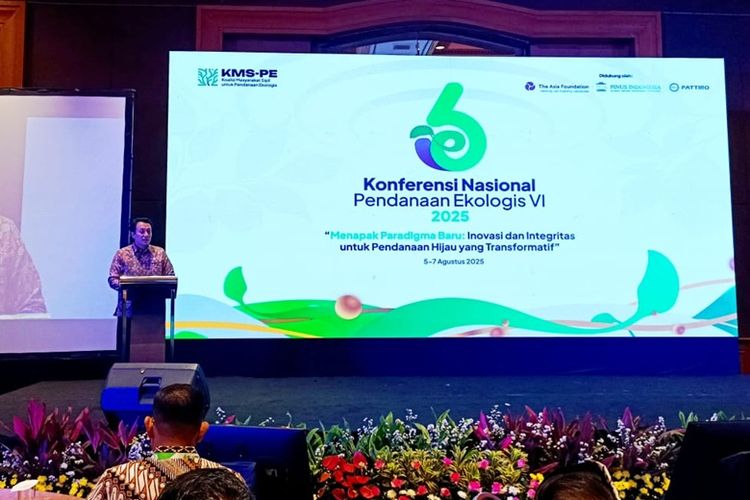
Nevertheless, he cautioned that the development of various EFT schemes must not lose sight of their primary objective: to ensure every green funding instrument truly has a tangible impact on environmental sustainability and the improved welfare of communities, especially vulnerable groups and ecological guardian communities.
Deputy Minister of Home Affairs Bima Arya Sugiarto, who was also present at the conference, affirmed the potential of EFT. He stated that maximizing its implementation requires collaboration from all parties, including strong leadership in the regions.
According to Bima, green leadership plays a major role in strengthening this scheme.
“The green leadership of regional heads can be built through collaboration with the private sector, the strengthening of green spaces and local economic conservation, changing citizen behavior through political campaigns and education, and consistent fiscal governance policies,” Bima explained.
Bima also welcomed the Green Leaders Forum (GLF) at the National Ecological Funding Conference, which was organized by KMS-PE. He believes that this annual forum for regional leaders committed to ecology plays a major role in strengthening collaboration among them.
“This is a strategic opportunity to collaborate in mainstreaming environmental issues. Moreover, some of these regional heads are from the millennial generation, who have a great concern for the planet’s sustainability,” Bima said.
A number of speakers were present to share their views at the GLF. Among them were the Ministry of Forestry’s Expert Staff for Climate Change, Haruni Krisnawati; the Ministry of Finance’s Director of Regional Financing and Economy, Adrianto; and the Director of the Environmental Fund Management Agency (BPDLH), Joko Tri Hartono.
Other speakers included North Kalimantan Governor Zainal Paliwang, Siak Regent Afni Zulkifli, and KMS-PE Representative Sitti Rahma Dani Dewi.
Declaration of the Regional Green Parliament Caucus and Awards
The 6th National Ecological Funding Conference also resulted in the declaration of the Regional Green Parliament Caucus (KPHD) by legislative members (DPRD).
Through this declaration, the legislators committed to promoting policies and programs that are responsive to environmental issues and to championing environmental interests in decision-making within regional parliaments.
Rabin Ibnu Zainal, a KMS-PE representative and Director of PINUS Indonesia, added that the KPHD is a significant milestone for the involvement of regional parliaments in fighting for ecological justice and equitable environmental funding.
The commitment and innovation of regional heads in increasing environmental funding through the EFT scheme were recognized by KMS-PE with the EFT Awards.
The awards were given based on the measurement of ecological performance, with the goal of benefiting environmental preservation and low-carbon development.
“The performance measurement includes a number of indicators, ranging from regional regulations, budget allocation, program performance, to community participation,” said Rabin, who also serves as the coordinator of the 2025 EFT award assessment team.
The recipients of the Main Innovation category award were Bulungan Regency in North Kalimantan, Siak Regency in Riau Province, and Sabang City in Nanggroe Aceh Darussalam. KMS-PE also gave special EFT Awards to four local governments.
First, the North Kalimantan Provincial Government for its high commitment to EFT integration. Second, the Jayapura Regency Government, recognized as a pioneer of EFT policy in Indonesia.
Third, the Bengkalis Regency Government for having the largest EFT allocation. Fourth, the Maros Regency Government for its integration of gender, disability, and social inclusion (GEDSI) aspects into its EFT. KMS-PE also launched the digital platform EFTIndonesia.org as a public knowledge hub. The conference also produced the KMS-PE National Advocacy Roadmap and strategic agenda for 2026–2030.
Fitria hopes that the forum can expand its approach from EFT to a broader and more integrated ecological funding scheme that reaches across sectors.
“Hopefully next year this forum can grow into an international conference on EFT, so its reach and influence can expand to a global level,” she added.
Note: This article was first published on Kompas.com as part of the media partnership for the 6th National Conference in Jakarta.



